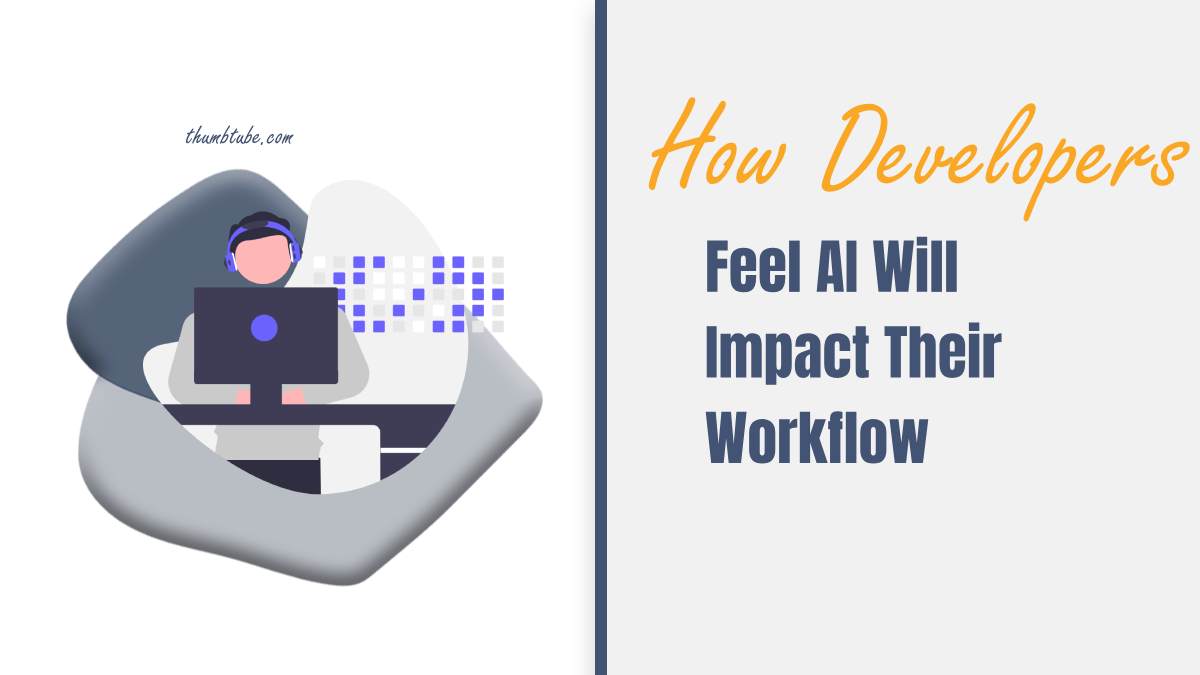The integration of Artificial Intelligence (AI) into various industries is not just a buzzword; it’s a transformative force that is reshaping workflows and processes. Developers, in particular, are at the forefront of harnessing AI’s potential to streamline tasks, enhance efficiency, and drive innovation. As AI technologies continue to advance, developers are expressing a range of perspectives on how AI will impact their workflows.

1. Automating Repetitive Tasks
One of the most immediate impacts of AI on developers’ workflows is the automation of repetitive and mundane tasks. Writing boilerplate code, debugging, and testing can be time-consuming and tedious. Developers believe that AI can take over these routine tasks, freeing them to focus on more creative and complex aspects of their work. This shift is expected to increase productivity and allow developers to channel their energy into solving challenging problems.
2. Enhancing Code Quality
Developers anticipate AI’s role in improving the quality of their code. AI-powered tools can analyze code for errors, security vulnerabilities, and coding best practices. This real-time feedback mechanism can help developers write cleaner, more efficient code, reducing the need for extensive debugging and maintenance.
3. Facilitating Documentation
Documenting code is essential for collaboration and future reference, but it’s often an overlooked aspect of development. Developers envision AI-assisted documentation tools that can automatically generate documentation based on the code’s functionality and structure. This streamlines the documentation process, making it easier for developers to communicate their work to team members and stakeholders.
4. Supporting Decision-Making
AI’s data analysis capabilities are anticipated to aid developers in making informed decisions. From selecting the most suitable algorithms to optimizing application performance, AI can analyze data patterns and provide insights that guide developers toward optimal solutions. Integrated into decision-making software, these AI-driven insights enhance the efficiency and accuracy of development processes by offering real-time, data-backed recommendations.
5. Enabling Predictive Maintenance
In fields like software development and IT operations, predictive maintenance is gaining traction. AI can analyze historical data to predict potential issues, such as system failures or bugs, enabling developers to address problems proactively before they escalate.
6. Accelerating Innovation:
AI can catalyze innovation by facilitating rapid prototyping and experimentation. Developers see AI as a tool to quickly build prototypes, test ideas, and iterate on concepts. This agility in the development process allows for faster innovation and adaptation to changing requirements.
7. Personalizing User Experiences
AI-driven personalization is a cornerstone of modern applications. Developers envision leveraging AI to create personalized user experiences that adapt to individual preferences and behaviors. This not only enhances user satisfaction but also opens avenues for more data-driven decision-making.
8. Simplifying Cross-Platform Development
Developers often face challenges when adapting applications for multiple platforms and devices. AI-powered tools can simplify cross-platform development by automating the adaptation process and ensuring consistent functionality across various environments.
9. Addressing Skill Gaps
As technology evolves, there’s a continuous need for developers to upskill and adapt to new tools and languages. AI-driven learning platforms can personalize learning paths and recommend resources tailored to individual skill gaps, making ongoing education more efficient.
10. Fostering Creativity
Contrary to concerns about AI replacing human creativity, developers believe that AI can actually foster creativity. By handling routine tasks, AI allows developers to focus on innovative problem-solving and the exploration of new ideas.
Developers are embracing the potential of AI to reshape their workflows and the development landscape as a whole. While AI promises increased efficiency, automation, and innovative problem-solving, it’s important to strike a balance between AI-driven processes and human creativity. The successful integration of AI into development workflows hinges on developers’ ability to adapt, learn, and harness AI’s capabilities to create meaningful and impactful solutions. As AI technologies continue to advance, the collaborative efforts of developers and AI tools are likely to define the future of software development.
